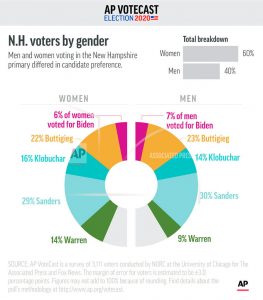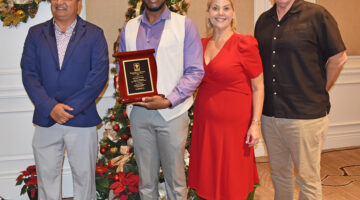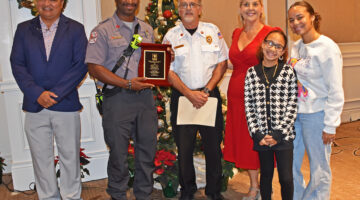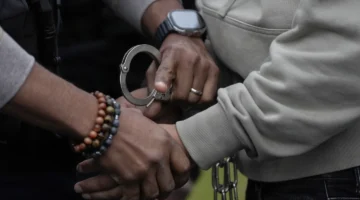AP VoteCast: After Iowa, many NH Dems worry about fairness
WASHINGTON (AP) — Only 14% of New Hampshire Democrats said they were “very confident” that the process for picking a presidential nominee would be fair, a sign of possible doubts lingering in voters’ minds at the state’s Tuesday primary.
The trouble tabulating results in last week’s Iowa caucuses, an issue that has yet to be fully resolved, may have rattled the faith of some voters amid uncertainty about who is the Democratic front-runner. The skepticism was clearest among Bernie Sanders’ backers, with about 6 in 10 saying they had little or no confidence in the Democratic primary process. Majorities of voters for every other top Democratic contender described the primary process as fair.

Men and women voting in New Hampshire differ in which candidates they prefer, according to AP VoteCast. ;
The results from AP VoteCast suggest that Sanders’ younger and generally more liberal supporters distrust their fellow Democrats, a potential reflection of the Vermont senator losing the 2016 nomination to Hillary Clinton. These suspicions could set up a bruising round of election contests in the weeks ahead as Democratic voters choose whether it is better to lean into an overtly liberal contender or embrace a more moderate challenger to President Donald Trump in November.
Matthew Gage, a 40-year-old EMT attending a Sanders party in Manchester, New Hampshire, said he was angered by the use of super delegates in the 2016 election and remains “suspicious” that the process is fair this time around.
This year, he said, “I have more confidence only because there’s more eyes watching them and they know they can’t hide stuff.”
AP VoteCast is a wide-ranging survey of more than 3,000 Democratic primary voters in New Hampshire conducted for The Associated Press by NORC at the University of Chicago.
There is clear tension between liberal and moderate Democrats. Former Vice President Joe Biden, former South Bend, Indiana, Mayor Pete Buttigieg and Minnesota Sen. Amy Klobuchar have attempted to carve out a more moderate lane, while Massachusetts Sen. Elizabeth Warren and Sanders have found strength as liberals.
Nearly 6 in 10 New Hampshire Democrats described themselves as moderate or conservative. Buttigieg held an advantage with this group of voters.
And there were signs voters were searching for a more moderate choice ahead of the primary. About half of voters who made a decision in the final days went to Buttigieg or Klobuchar.
Voters also see liabilities in the Democrats vying to run against Trump. About 6 in 10 said a candidate with strongly liberal views would have difficulty competing with the incumbent president, evidence that Sanders and Warren may be struggling to make the electablity argument outside their base of supporters. But roughly 6 in 10 also said a gay nominee — Buttigieg — would also face greater hardship in the general election.
Still, New Hampshire Democrats are willing to rally around their party’s nominee. At least 6 in 10 said they would be satisfied with Buttigieg, Klobuchar, Sanders or Warren as their presidential candidate. Fewer — about half — said they would be pleased if Biden became the nominee.
Broader questions about fairness in U.S. society have been a central concern for the Democratic candidates.
An overwhelming share of New Hampshire Democrats — nearly 8 in 10 — view the economy as unfair. But there is little consensus on which candidate would do the best job of stewarding the world’s largest economy.
Roughly a third of voters who said the economy is “very unfair” favor Sanders to lead the economy. About 2 in 10 think Warren is most capable. Sanders and Warren have campaigned to overhaul an economy they say caters to billionaires, each proposing wealth taxes to fund programs for the middle class and poor.
The roughly 2 in 10 New Hampshire Democrats who believe the economy is fair have another candidate in mind: former New York City Mayor Mike Bloomberg. Worth more than $60 billion and not on the ballot in New Hampshire, Bloomberg had a slight edge on the economy among this group.
_______
Associated Press writer Kathleen Ronayne in Manchester, New Hampshire, contributed to this report.
_______
AP VoteCast is a survey of the American electorate conducted by NORC at the University of Chicago for The Associated Press and Fox News. The survey of 3,111 voters in New Hampshire was conducted for seven days, concluding as polls closed. Interviews were conducted in English or Spanish. The survey is based on interviews with a random sample of registered voters drawn from the state voter file. The margin of sampling error for voters is estimated to be plus or minus 3.0 percentage points.
___
Catch up on the 2020 election campaign with AP experts on our weekly politics podcast, “Ground Game.”





No Comment